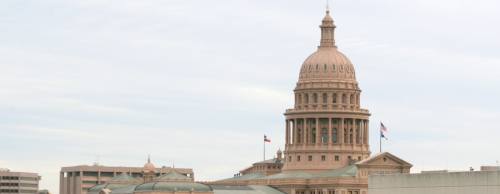Local officials agree the 2017 state legislative session was especially exhausting for Austin, which had to defend against a bevy of state repeals and pre-emptions of local policies, and according to early predictions, the capital city will not get a break in the 2019 session either.
In recent years, Austin’s relationship with its state government has soured. In the 85th Legislative Session, over 2,500 bills were proposed that directly dealt with cities—600 more than the previous session—and 294 city-related bills passed—roughly 75 more than the prior session. City officials refer to that session as an attack on local control, painted with policy battles over sanctuary cities and immigration, annexation, bathroom laws, plastic bag bans, property taxes and land use.
The city expects the 86th Legislative Session—which kicks off Jan. 8—to unearth some of those battles and take aim at local property tax revenue, local policies on paid sick leave, fair chance hiring and anti-discrimination bathrooms, deregulation of publicly-owned utilities such as Austin Energy and local zoning and short-term rental rules.
Another attack on local control?
Bills focusing on property tax revenue caps and potential deregulation of Austin Energy should top Austin’s priorities, said Brie Franco, the city’s intergovernmental relations officer. Franco briefed Austin City Council Tuesday on their legislative priorities—what to support, what to lobby against—for the upcoming session, which City Council will vote on Thursday.
Attempts to cap municipalities’ local property tax revenue date back to the 2017 session. Currently, cities can increase their property tax revenue up to 8 percent before a public vote is required. During the prior session, both the state house and senate proposed but failed to pass bills that would have limited that year-over-year increase to between 4 and 6 percent.
However, if Gov. Greg Abbott’s proposed tax reform finds approval next year, residents would get to vote if their local taxing entity—counties, schools and municipalities included—proposed a property tax revenue increase above 2.5 percent. In the most recent budget, Austin approved a roughly 5.5 percent increase, but the city ran up against the 8 percent cap for several years prior.
Upon releasing his plan in January, Abbott said property taxes continue to skyrocket and bear a heavy financial burden on Texans while undermining "very important private property rights."
"The plan will give Texans a bigger say over their property taxes," Abbott said.
District 4 Council Member Greg Casar said the negative impacts of Abbott’s tax plan could not be understated.
“If anything changed in the way we earn revenue, it could make our budget structurally unsound,” Casar said. He warned of consequences that included cutting back programs and restructuring incentive agreements between the city and some private corporations located in Austin.
Franco said legislation might threaten Austin Energy, the city’s publicly owned electric utility. Earlier this year, Austin Energy representatives testified alongside other municipally owned utilities in front of a senate committee that is looking at public utilities’ impact on free market electricity.
Recent local policies on short term rentals, paid sick leave, fair chance hiring and the city’s ordinance on gender neutral bathrooms are also expected to come under fire.
City council will vote on their legislative priorities at is Oct. 18 meeting. Bills will begin filing into the legislative hopper on Nov. 12.
—————————————————————————————————————————————————
Editor's Note: A previous version of this article incorrectly stated the number of city-related bills proposed and approved in the 85th Legislative Session.





